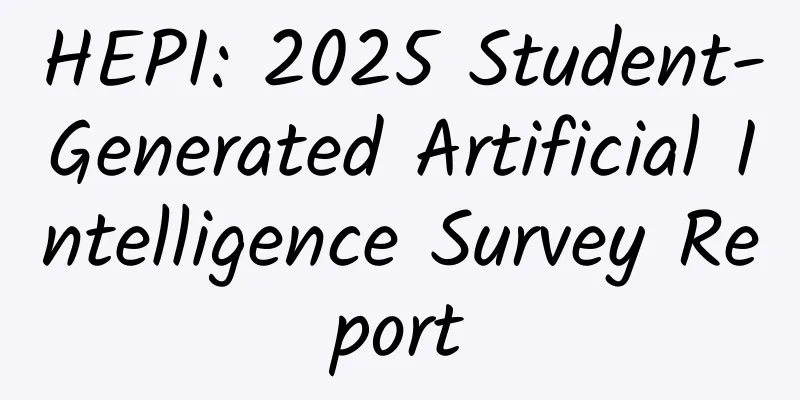HEPI: 2025 Student-Generated Artificial Intelligence Survey Report

|
Based on the 2024 AI Survey, the UK Higher Education Policy Institute surveyed 1,041 full-time undergraduates through Savanta to understand their use of generative artificial intelligence (GenAI) tools. Student use of AI has surged over the past year, with nearly all students (92%) now using AI in some form, up from 66% in 2024; about 88% of students have used GenAI in assessments, up from 53% in 2024. The main uses of GenAI are to explain concepts, summarize articles, and propose research ideas, but a significant number of students (18%) directly include AI-generated text in their assignments. When asked why they use AI, students most often say it saves time and improves the quality of their work. The main factors that prevent them from using AI are the risk of being accused of academic misconduct and the fear of getting wrong or biased results. Women are more concerned about these factors than men, who expressed more enthusiasm for AI across the survey, as do wealthy students and STEM students. The digital divide found in 2024 appears to have widened. Institutions have a strong record of protecting the integrity of assessments, with 80% of students agreeing their institution has a clear AI policy and 76% saying their school would see the use of AI in assessments—both increases from 2024. While the vast majority of students believe having good AI skills is essential, only 36% say their institution provides support to develop those skills. The gap between the number of students who would like to be offered AI tools and the number who are currently offered them has widened. AI literacy among faculty and staff has improved, with 42% of students agreeing that faculty and staff are “well equipped” to help them use AI, compared to just 18% in 2024. The survey found that less than half of students (45%) had used AI during their school years, and more agreed that AI-generated content would get good grades in their subject (40%), compared with 34% who disagreed. But they were lukewarm about the possibility of exams assessed by AI: 34% would put in more effort, 29% would put in less effort, and 27% would make no change in their effort.
|
Recommend
“I discovered it!” Darwin and Einstein also “competing for the first place”?
Text| Shi Xiaolei The third issue of Physics maga...
Chinese people are the fastest growing people in the world! Have you contributed?
Earlier, the world-renowned medical journal "...
iOS 15 looks like this! Apple's official app leaks the secret: the design is better
Apple Music for Artists is a professional app for...
Activity Operation丨How to Play APP Online Activities and Offline Promotion
Today, I will summarize some methods of online ac...
Le Xiang Chen Chaoyang: Products are the entrance to the VR ecosystem
According to the news, iQIYI VR Summit was succes...
Alibaba's automotive industry is making new moves. How will the upgraded AliOS and Zebra change the industry ecosystem?
On September 22, at the 2018 Hangzhou Yunqi Confe...
E-commerce operations, customer acquisition ideas for social e-commerce group buying!
Friends who have been paying attention to the e-c...
Xianyu no-source e-commerce screen domination + instant store operation operation course collection (operation video + materials)
Xianyu no-source e-commerce screen domination + i...
Why is my internet so slow?
Whether it is the popularity of the mobile Intern...
How to operate short videos? How to make short videos for self-media?
Short videos are becoming more and more popular. ...
Wuwei College Teacher Li Dong's five-day training camp for bull stock trading
Introduction to the bull stock trading resources ...
Tencent QQ: Please cherish your account rights. More than 13,000 QQ accounts have been blocked this year.
On October 31, Tencent QQ Security Center release...
2018 Buick Envision Guangzhou Auto Show live shot: 28T models fully replaced with 9AT gearbox
At the 2017 Guangzhou Auto Show, the 2018 Buick E...









